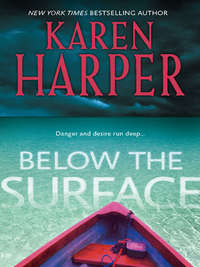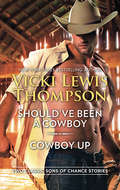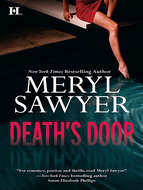Książki nie można pobrać jako pliku, ale można ją czytać w naszej aplikacji lub online na stronie.
Czytaj książkę: «Below The Surface»
Karen Harper
Below the Surface

Contents
Acknowledgment
Chapter 1
Chapter 2
Chapter 3
Chapter 4
Chapter 5
Chapter 6
Chapter 7
Chapter 8
Chapter 9
Chapter 10
Chapter 11
Chapter 12
Chapter 13
Chapter 14
Chapter 15
Chapter 16
Chapter 17
Chapter 18
Chapter 19
Chapter 20
Chapter 21
Chapter 22
Chapter 23
Chapter 24
Chapter 25
Acknowledgment
Thanks to my great MIRA Books team.
I value your expertise and support:
Miranda Stecyk
Margaret O’Neill Marbury
Dianne Moggy
Donna Hayes
Craig Swinwood
Katherine Orr, Marleah Stout
and their great staff,
including Maureen Stead
and especially all the dynamic MIRA Books
sales staff!
And, as ever, to my greatest supporter, Don.
1
The Gulf of Mexico off South Florida
September 12, 2006
When Briana Devon surfaced, her boat was gone. Something—besides the fact that the gulf had gone rough since she’d begun her dive—was terribly wrong.
She struggled to keep her underwater camera and strobe from being ripped away by the waves. Her tethered plastic slate with its latex rubber pencil she used to make notes underwater smacked her face; she thrust it behind her.
She kept the regulator in her mouth, clenched between her teeth. Still sucking in the air from her tank, she heard the hiss of her more rapid breathing mingled with the howl of the increasing wind. Since she was fairly low on air, her single tank yanked back and forth on her BC, the vest-style buoyancy compensator that supported her in the water.
This was impossible! Had she come up in the wrong place? No, the pelican float she’d deployed bobbed wildly, riding the waves. She was where she meant to be, but where was Daria and their dive boat? And how fast the distant storm had come up.
Holding on to her gear and using her flippers, she spun in a circle. Maybe the Mermaids II was just blurred by the darkening horizon. No, all she saw were clumps of clouds, not even other boats, with that storm coming in much faster than the weather-man had predicted. But Daria would never have left her out here.
Despite being a veteran diver, panic pulsed through Briana for herself and her sister. Bree and Daria Devon were not only twin sisters but had been best friends since they could remember.
Bree put more air in her BC to keep afloat and fought to calm herself. After all, she’d been diving for twenty of her twenty-eight years and swimming these waters even longer. Every week, she and Daria dived the artificial reef made by the wreck of an old trading boat to check on the growth of pollutant-endangered sea grass and marine life. The grass was a bellwether for the health of the gulf waters in general. It had all been routine until now.
Bree had not noticed whether the anchor had been pulled up. She’d only been intent on doing her work well and quickly. Just take the photos, make the notes, get proof. The results were bad news that was going to upset a lot of powerful people. She’d only come up early because visibility was lessening, and that meant the waves were kicking up. But she’d never imagined this churning, gray sea and gathering storm.
The twins had always buddy-dived unless they were just scraping barnacles off hulls at the marina, but there were two reasons Daria hadn’t made the dive with her today. She’d suddenly developed a bad toothache, which would have made the underwater pressure excruciating for her. And someone had to stay with their dive boat: Daria had given Manny, their only employee at their search-and-salvage shop, the afternoon off since he’d been having so much trouble with his daughter. Actually, Daria hadn’t been diving much this past month anyway, since she’d been so busy concentrating on her accounting class.
Bree’s arms ached from trying to hang on to her camera and strobe in the increasing turbulence. She had never feared this vast stretch of water, only respected it, but now terror immobilized her. Alone. Abandoned? She should probably start swimming in, but she was over four miles out and she’d have to ditch her precious gear. She should have taken it as a bad sign when she saw that bull shark cruising past the reef instead of the usual resident grouper. Bulls became disturbed whenever the water was riled, and they were known to attack humans. How many times had she warned someone not to swim alone or far from shore, and to avoid splashing?
Bree had a whistle to summon help, but there was no one in range to hear it. She could set off her strobe to try to attract attention, but holding it above the waves would wear her out. Reluctantly she let her strobe lights and camera drop, hoping they would snag somewhere near the wreck and she—they—could retrieve them later. The camera was worth big bucks; they’d scraped a lot of barnacles off yachts to buy it.
The twins’ co-owned marine search-and-salvage shop had been struggling, but things were on the upswing lately. They did everything from underwater surveys to hull maintenance to retrieval of lost items or sunken vessels. It could be dirty, hard, even dangerous work, but they both loved it. They knew what was below the surface of the gulf off southwest Florida almost as well as they knew each other.
It had been a surprise and a thrill when the prestigious Clear the Gulf Commission had hired them—not their larger rival across the bay—to record the difficult comeback of off-the-coast marine life under siege from toxic runoff. The whole local ecosystem was being poisoned by fertilizers from sugarcane fields, golf course fairways, and polluted water releases from just too many people.
To save her strength, Bree decided to dive again and get as far as she could underwater before she’d have to ditch her tanks and weight belt to swim in. Though she saw no watercraft, perhaps one would be heading for safe harbor and she could hail it. She upended and kicked down until the turbulence seemed to lessen.
The Gulf of Mexico, off Naples, Marco Island and Turtle Bay, was a shallow body of water, at least compared to the Atlantic. The bottom was fairly flat for a long way out: after an initial drop-off, it deepened about two feet per mile and was broken only by small ledges and man-made reefs. But because the depth was fairly shallow, the gulf could get violent fast. It was the underwater storm of sand and silt that had tipped her off to the one above. Though she did a lot of close-up, well-lit macrophotography, even that was looking grainy today.
Most people—especially tourist divers from “the frozen North,” as their dive friends called it—thought the water off Naples was not great dive territory. But the twins had always loved it more than the glamour spots of the Keys or even the Caribbean. Fifteen feet of visibility in this part of the world was a great disappointment to some, but in the summers, the sea often went flat and turbulence was minimal. This part of the gulf was not crowded with divers, so it seemed pristine, with an abundance of wildlife like grouper, tarpon, rays, sea turtles, beautiful shells and, unfortunately at times, sharks. They also loved the gulf because that’s where they’d learned to dive. It seemed so untouched, with the exception of the fact the reefs were man-made. But then, the natural coral reefs on the other coast were as endangered as the sea life would soon be here, if their project didn’t help turn things around.
As she swam toward shore, roiling sand and silt and the thickening clouds made it too dark for her to be certain in what direction she was heading. Mostly, she went with the surge of the waves, which should take her in. Unfortunately, the tide was flowing out and the wind was fighting that, churning the water into a soupy maelstrom. She couldn’t even read the luminous dial of the compass dive watch Daria had given her for their birthday last month. Daria and the boat…She could not imagine what might have happened, why her sister would desert her during a dive.
Surely nothing could have capsized Mermaids II, not a twenty-four-foot skiff with a flat bottom. There was no so-called Bermuda Triangle on this side of Florida. Yacht pirates and drug dealers wouldn’t want a slow diver’s boat. Smugglers had begun to bring in desperate refugees fleeing Cuba, and boats involved in the horrible human trafficking trade imported poverty-stricken Guatemalan women as domestic drudges or even sex slaves on both sides of the state. But those boats sneaked in at night to avoid being spotted or caught. Even if Daria had become ill, she wouldn’t leave her. Nothing made sense.
In the murky water Bree could not read her air-pressure gauge, but she could feel the air through her mouthpiece becoming more difficult to breathe. Realizing her air was quickly running out, she surfaced. The waves were four feet now; she rode them up, down, sliding with their strength. It had started to rain. Which way was the shore?
She accidentally took in a mouthful of water, then spit it out. Swallowing salt water always made her nauseous. She was getting sick to her stomach anyway, furious and fearful. Dad had always said never to let your emotions rule your head, not when diving. In a way, after Mother died, that had become his credo for life. Just keep busy, so busy you don’t have time for feelings, suffocating, desperate, drowning feelings…
Bree dropped her weight belt, ditched her tank with the quick-release straps and began breathing through her snorkel. The tank went under with a loud gurgle. She felt lighter—better, she tried to buck herself up. She could make it in. Keewadin Island, long and narrow, must be ahead somewhere, maybe three miles or so. Thank God, she hadn’t been at some of the more distant dive sites like Black Hole Sink or Naples Ledges, which were around thirty miles out.
She tried to convince herself that this was only the usual, quick afternoon summer storm, which would pepper the gulf, bathe the Everglades, then depart to leave a warm, humid evening. When would this summer weather break? Was she going to break?
Bree tried not to swallow water. Swimming was suddenly exhausting; despite her desperation to get ashore, she had to pace herself more. She slowed her strokes and kicks toward what she was certain must be land.
Stroke, stroke, stroke, breathe. Despite the outgoing tide, she was certain the waves must be pushing her along. But it was so far in. Hard to get good breaths. And then she heard it, the thing she feared most.
Thunder rumbling, coming. And that meant lightning.
Oh, no. Oh, no. Just last week, she had sat on their veranda at Turtle Bay and watched a storm like this. Forks of lightning had stabbed the gulf and then the bay just beyond the docks, coming closer, closer. As usual, the power had gone off for a while, but the twins weren’t air-conditioner addicts like their older sister. Amelia almost never opened her windows, even in good weather. That would make her house dusty. Her poor kids, whom she kept so clean, could use a little dust and dirt.
Bree’s muscles began to burn. She could hear Dad’s voice telling her and Daria, “When in doubt, get out.” Out, she wanted out. She wanted to be on the Mermaids II with Daria. She wanted to be home, safe and dry. She loved the water, loved the gulf, but not out here alone, tiring, so exhausted. Lord, please keep me safe. Daria, too. What happened? Daria, where are you?
A wave took one of her fins, and she had to kick the other off to avoid swimming askew. On, on, pull, pull, breathe, flee the thunder and lightning coming closer. She was starting to feel in the zone, like when she jogged several miles, but she was getting light-headed, dizzy, too.
The first distinct crack of lightning struck so close she flinched and shrieked into the mouthpiece of her snorkel. And then she saw another reason to scream. A big bull shark was swimming with her.
Cole DeRoca was shocked by how fast the storm came up. Usually, you could set your watch by the afternoon storms off the gulf, but this one was early, fierce and dangerous. Though his custom-made sloop was all wood, he wasn’t about to have his single mast be the tallest thing in the area. After all, Streamin’ had copper and brass fittings, and sailors knew lightning could be erratic and deadly.
It would be crazy to try to make it back to the mainland. He’d have to beach the sloop on Keewadin Island and hope he could get her off the sand later. The wind was a good twenty-five knots, whistling shrilly in the rigging. Ordinarily, he’d love racing at this speed, but he needed dry land fast.
To his amazement, the boat nearly heeled over on her side and started south. He felt shoved, grasped in a giant’s grip. A riptide? Yes, a narrow but deadly one along here, caused by the battle of the waves and wind.
He went with the flow for a little ways, like they tell you to do when swimming, then fought it to head back north, tacking back and forth. Finally, the long, beige beach of the barrier island of Keewadin appeared through the slate-gray of slanted rain. Cole retracted the centerboard as the sloop neared the shore. With good speed from the driving waves, he released the main and jib sheets, but they began flogging wildly. His primary thought was to save himself and the boat at the likely sacrifice of his nearly new sails.
As he approached the shore, he tripped the jamb cleats to release the halyards and began tugging at the thrashing sails until they both dropped to the deck, finally free from the force of the wind. He felt a wave thrust the bow of Streamin’ up, then down, as she slammed onto the beach with a thud. Waves pounded the aft of the stranded vessel.
At least it wasn’t a deadly riptide this time, just the sweep of surf. He jumped into foaming, waist-deep water and struggled to turn her prow in and get her higher on the shore. Thunder rumbled and lightning crackled. Get out of the water, he told himself. Get out now.
Cole loved this boat he’d made with his father, the only one he’d helped him build before everything went wrong. Though he was thirty-four now and had been out on his own since he was twenty, sailing still made him feel closer to his dad. Their family tree boasted five generations of boatbuilders, beginning in Portugal, then the Bahamas, onward to Key West, then Sarasota and Naples. Bahamian sloops like this one had once been used throughout the tropics, but now they were like an endangered species. He often dreamed of ditching his luxury yacht interior trade and take a chance on his own boatbuilding. He’d love to build boats like this one again. America had a throwaway culture, but these babies were built to last, even in a storm, though he’d never seen one as quickly fierce as this.
He tried to set the soles of his running shoes firmly in shifting sand. Both hands on the stern, he shoved. Streamin’ slid her sleek length farther up on the beach. Keeping low, holding the metal anchor by its rope so he didn’t have to touch it, he secured the sloop. Then, his shoes filled with water and sand, he slogged behind the line of mangroves and hunched over, crouched on the balls of his feet. He knew not to lie flat, where you’d have more of your body in contact with the ground if it was hit. Thank God, he’d made it safely out of the gulf, because this was one hell of a howler.
Bree wanted to just close her eyes and give up. A countercurrent swept through here, maybe a riptide that would carry her away. Despite her silent fear of her toothy companion, she swam on. She could stop moving to see if the shark would go away and to save her strength, but what if she got pushed farther out? What if lightning…or that shark…
A fierce, elemental terror flooded her; she wanted to scream and scream.
But then—dear Lord in heaven, was she seeing double? No, there were two of them, two big gray bodies with white underbellies, the dorsal fins knife-edged. The newest bull shark was at least seven feet long, his small, flat eyes staring at her each time he came near the surface. She stopped swimming. Should she just hang still in the water and let herself be taken out to sea? Bulls were aggressive and commotion bothered them. Maybe the rough water would keep their attention off her.
Was this a sheer, stark nightmare? If lightning or the sharks hit her, they might never even find her body. Had Daria been caught by these devouring depths, too?
Bree let the current take her for what seemed an eternity, then, when its powerful pull seemed to ease, swam on toward shore again—sharks still alongside. Each time she kicked, each time she pulled her arms through the water or even turned her head to breathe, she feared the jaws of her companions, feared being fried by another lightning strike so close.
A blast of something hit her hard, jerked her through the next wave. The riptide again? Shark? Jaws of a lightning bolt? She spit out the mouthpiece of her snorkel and screamed.
Bloodred colors exploded before her eyes, in her head. Something huge lunged at her. Then came only blackness.
2
Cole was soaked to his skin. The wind lashed him, and rain stung his shoulders and back through his sopped shirt. The narrow key seemed to shudder with each roll of thunder. Yet, through it all, he thought he’d heard a shriek.
He lifted his head. It wasn’t just the shrill of wind through the boat’s rigging. Something almost human…
Squinting into the rain, he peered around the thick patch of mangroves to check on his sloop. Though Streamin’ had listed from the pounding of the surf, she looked all right. But something was sprawled on the beach beside the hull, as if there had been an accident and the prow had hit someone.
Still keeping low, he went to see what had come in. His breath huffed out as if he’d been hit in the gut; his heart pounded even harder. A woman—it looked like a drowned mermaid!
No, no, of course not, he told himself as he bent over the sprawled figure. The short-sleeved, full-length, silvery-green wet suit clung to her curves so tightly it looked painted on. It was designed with a fin-and-scale pattern to look as if she had a tail. Long legs, that was all. Her shoulder-length, auburn hair clung to her head. Her graceful, limp arms were in a ballerina pose, as if she would dance. Was she dead?
Afraid to roll her face up—instinct in case she had spine or head injuries from hitting his boat—he felt for the pulse at the base of her throat. She felt cold and, despite her tan, her cheek and chin looked pale and waxy, almost as if she were a life-size doll. She had a faint pulse, but she was so still he wasn’t certain she was breathing. Carefully, he turned her over, faceup.
She had marks on her face from a diving mask, but he knew this woman! Or else he knew her sister. She was one of the twins who owned the Two Mermaids Marine Search and Salvage Shop in Turtle Bay, not far from his own business. He’d had an impromptu lunch with one of them—Briana—the day she’d been scraping the hull of the Richardson yacht when he was paneling the salon with Santos mahogany. He’d been going through the divorce then and was only dating his sloop, or he would have called her. Thank God, she was alive, but she might not be soon if she didn’t take a breath.
Ignoring the slashing rain and continued threat of lightning, he pulled her carefully up out of the slosh of the surf. Hunched over her, just beyond the breaking waves, he started mouth-to-mouth resuscitation. He hadn’t done that on anyone since he’d tried to save his father when he’d found him on the floor, and that was too late. What had happened to this woman? Surely she hadn’t been swimming in the storm.
She seemed slender and small, but he knew she was a vital, strong woman. Come on, baby. Come on back. Breathe for me. Let my lips warm yours, sweetheart. Come on, come on.
It had amused him, then impressed him, that two women would run such a rough-and-tumble business, especially when their competition across the bay was a gruff, tough guy who pretty much had a monopoly on search and salvage in the area. The women mostly did light salvage, none of the heavy stuff with dredging and demolition like Sam Travers, but search and salvage was always a risky business.
Come on, baby, I know you’re spunky. Take my breath. Come on, you beautiful little mermaid!
He started to panic, his sweat mingling with the rain, even in the cool rush of wind. After what seemed an eternity, her mouth moved against his. He stopped and looked down into her face, glazed by rain and gulf water. Her thick eyelashes, plastered to her ashen cheeks, flickered. She frowned and moaned.
“Hey, mermaid!” he said, feeling like a fool, but he couldn’t remember her last name and wasn’t sure which twin this was. Still, he used the name he knew, one he’d remembered for months now because it had seemed to suit her. It had reminded him of the word brio, for her enthusiasm and verve that time they’d talked and eaten together. He’d felt an instant attraction to her, a surge of desire that he’d tried to control by being overly polite and teasing that day. “Briana?” he said, his voice shaking. “Briana!”
She slitted her eyes open. “Daria?” she said, and started to cough up water.
He rolled her over slightly and braced her with one arm around her. One hand held her forehead steady like his mother used to do for him years ago when he threw up. It wasn’t until he saw the burn marks on her limp left wrist, like a big bracelet around her dive watch, that he realized she might have been hit by lightning. He laid her back down on the sand, leaning over her, trying to keep the rain and wind off her with his body.
“Where’s Daria?” he asked. “What happened?”
No answer. He gasped when he saw her eyes were dilated, the huge, black pupils eating up the gray-green of the irises, the color of the sea. He had to get her medical help—now. He couldn’t wait for the storm to end. But there was no way to get an EMS vehicle out here, and a medical chopper couldn’t fly in this mess. He could get on his radio and Mayday the coast guard, but it would take them time to get out here and he could have her into Naples by then—if all went well.
He had to hurry. His mermaid had evidently fainted or gone comatose at his feet.
He put his hand on her chest to be sure she was still breathing. Yes, shallow but steady. Though he hated to take the chance with the sloop, he had to risk sailing in with her right now. At least in an all-wooden boat—if he could get it off the beach—they might be able to escape the lightning. It would be rough going, but he had to try.
Praying she had no broken bones or internal injuries, he lifted her into the sloop and gently lashed her down. He stripped off his polo shirt and, though it was soaked, too, laid it over her upper torso. One of his customers had been hit by lightning on a golf course, and his doctor had told him that fast medical help had saved him from severe complications. He could not bear it if this beautiful, bold woman were permanently hurt. That old adage about being responsible for someone if you saved their life hit him hard, but he hadn’t saved her yet.
Straining every muscle in his body to get some lift for Streamin’, Cole tried to time pushing the sloop off the sand with the roll of the surf, but the power of the waves and wind beat it back. Waves could easily swamp or capsize a boat leaving a beach. His fourteen-foot sloop, which he knew more intimately than he knew any woman right now, fought him hard.
But he saw the wind had clocked around to the north. He could use the power of the sails to propel the sloop off the beach. In a hand-over-hand effort, he pulled the main halyard until the sail had reached the top of the mast. Then with a grunting, grinding heave, Cole pushed the bow of the boat off the beach toward the pounding surf. As the little sloop swung her bow through the wind, the sails filled, and she moved into deeper water. He pulled himself into the cockpit and grabbed the tiller in one hand while securing the mainsheet with the other. As he lowered the centerboard, the sloop began to feel her sea legs. She quickly picked up speed on a beam reach and cut through the water like a race car.
But it was brutal sailing. He had to step over his mermaid when he played the mainsheet and sit outboard to balance the heavy heeling. He feared a broach roll and had to adjust the tiller constantly. Every time the boat heeled, water sloshed over the side to soak Briana. She came to again, shoved her head and shoulder up by one elbow and screamed, “Sharks! Daria, sharks!”
“Lie down!” Cole shouted. “Down or the boom will get you when we tack. You’re with me, you’re all right. Lie down! There are no sharks. I won’t let them get you or Daria!”
That seemed to calm her, and that trust clenched at his heart. He had to get her to safety, see that she was taken care of. She was out of her head, and his friend had said amnesia and brain damage could be some of the aftereffects of a lightning strike. If he could just let go of the tiller and sit still a second in this raging chaos, he could call for help, have someone meet him at the marina with a squad for her. But he couldn’t tell where he was. To the pier yet? He didn’t want to hit the pier.
As for the sharks, she could not possibly have seen them just now, but she was dead on: he glanced ahead and saw several bull sharks racing right with them, just like the ones in the picture in his office. The Winslow Homer painting called The Gulf Stream was the reason he’d named his company Gulf Stream Yacht Interiors, the reason he’d named this sloop Streamin’. But these sharks almost bumping the boat were no work of art—this race was life and death for real.
Darmowy fragment się skończył.








